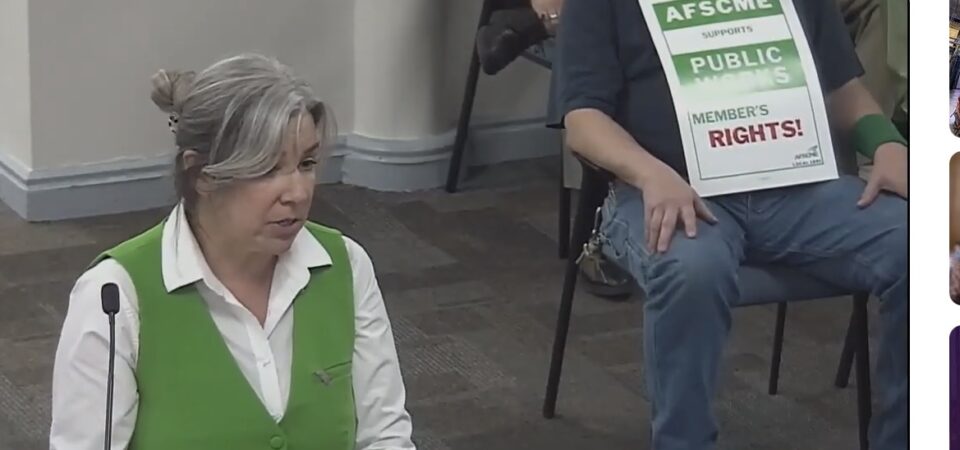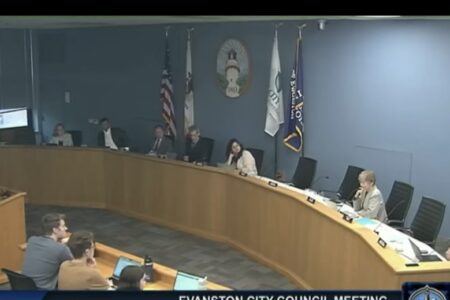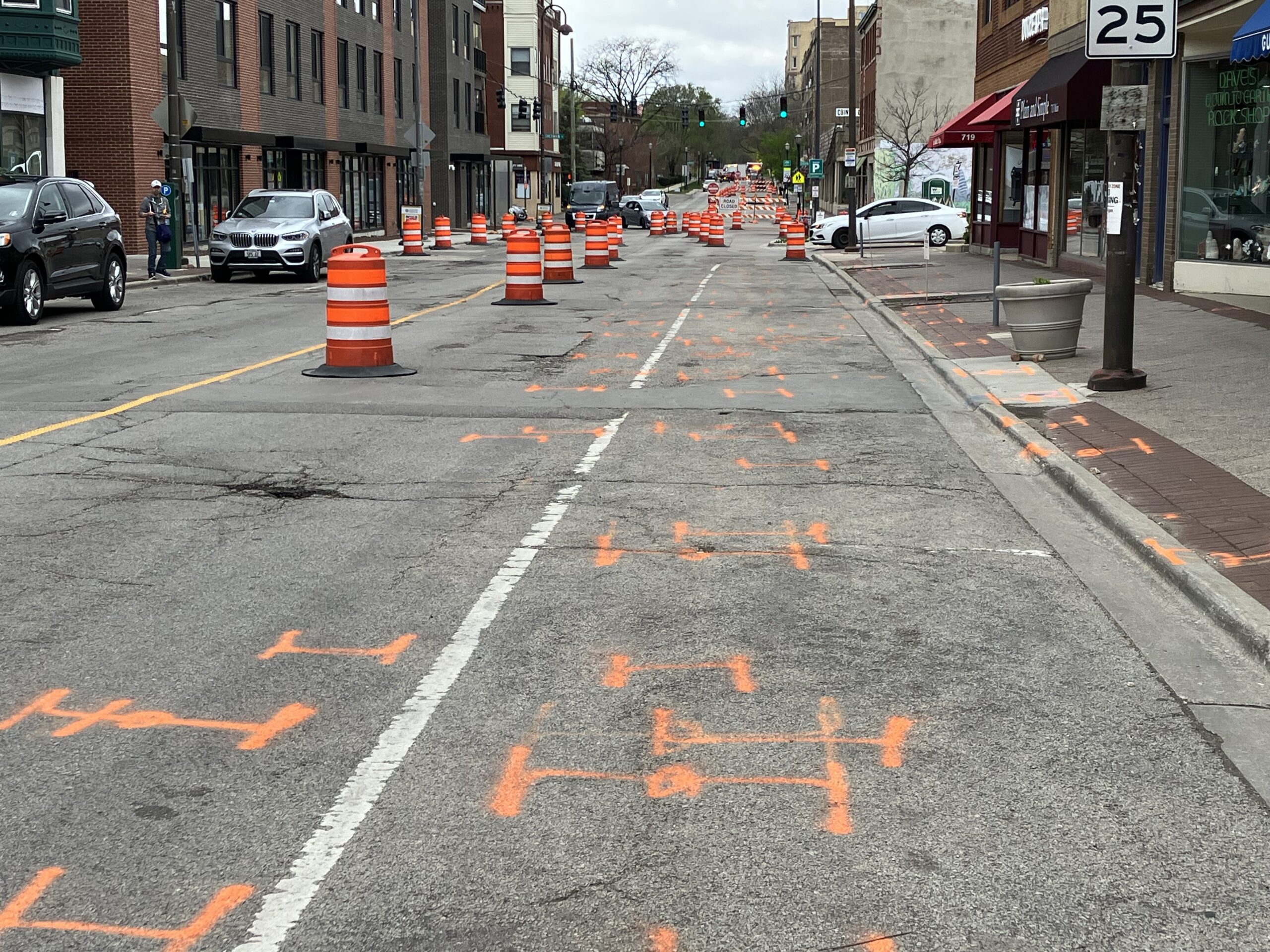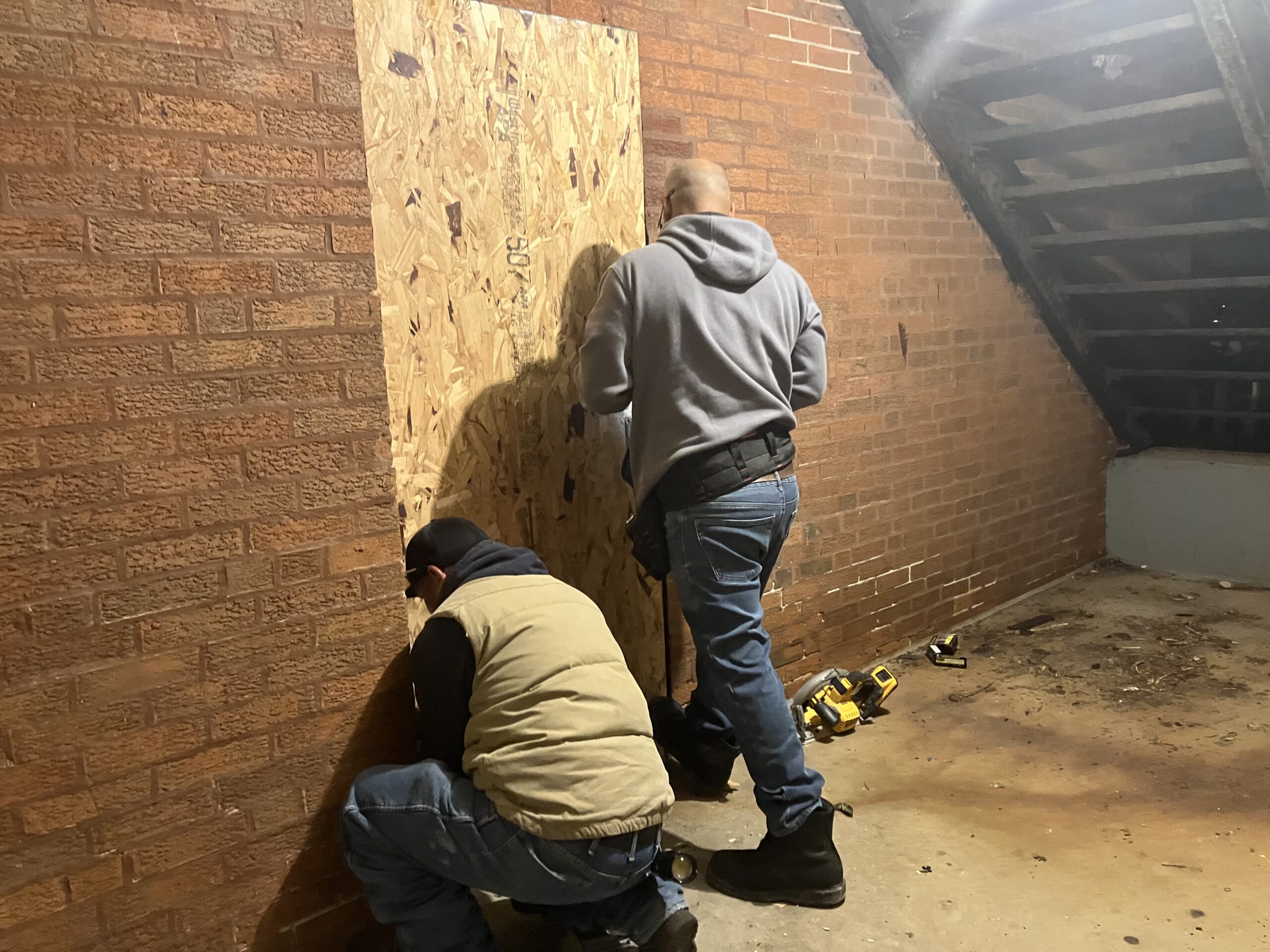By Bob Seidenberg
Members of the union that represents Evanston’s public works employees are expected to meet with city officials next week to discuss their concerns about potential violations of contract rights, and that low staffing levels have led to a sharp increase in worker injuries.
The employees, members of AFSCME Local 1891, went public with their concerns before the April 29 city Administration & Public Works Committee meeting, handing out flyers, charging the city wasn’t honoring standby pay, seniority rights and the progressive discipline process.
“Things that you can handle with a verbal warning, they go directly to suspension,” Eileen O’Neil, president of AFSCME Local 1891, told committee members. “We take our members who have a great attitude and love working at the city and we beat them down by giving them discipline after discipline over minor infractions and we give them a suspension when we already have low staffing levels. It just impacts our city more and more and our residents more and more.”
Council Member Clare Kelly (1st Ward), a committee member, invited O’Neil to provide a brief overview of concerns listed in a handout issued earlier.
Employees are concerned about low staffing levels, O’Neil told the committee.
“We think that it has a direct impact on our injuries, which have doubled under this current director,” she said. “Our Public Works members are not disposable. They’re human beings and they have the right to a healthy and safe work environment. And cutting corners on preventative maintenance and cutting corners on safety is having a direct physical impact on our workers.”
City response
The city released a statement Friday in response to the RoundTable’s query about O’Neil’s comments.
“The City of Evanston places paramount importance on the safety of its staff,” the statement read. “We appreciate AFSCME Local 1891 for bringing forward these concerns, and we are committed to working together to find solutions that continue to prioritize the well-being of our employees.”
The union is scheduled to meet with city officials in a labor-management committee scheduled for May 14. That came as an outgrowth of concerns workers raised at the April 29 meeting, said Anders Lindall, spokesperson for AFSCME 31, the statewide organization.
He said the overriding concern of employees is that they are being asked “to do more with less.”
Some 30 positions down, union charges
“They’re overworked, new hires are not getting proper training and people are hurt as a result,” he maintained.
Of the 150 funded positions in the department, only some 120 are currently filled, he asserted. And of the roughly 30 unfilled positions, less than half have been posted. Of those, some have been posted “a very long time, like more than two years,” he said.
Public Works employees make up the city’s front line of response in snow and storm and street emergencies. Many operate large machinery and the job can also involve heavy lifting.
Injuries have included a number of joint and muscle sprains, strains and tears that occur when people rush to accomplish a greater workload with less time and fewer staff; knee, ankle and foot injuries as well as injuries to head, neck or back, O’Neil said.
Making matters worse, people feel pressure from management to return to work or come off light duty before they’re ready, contributing to reinjury, she said.
At the A&PW meeting, Kelly asked O’Neil to discuss the union’s concern that standby pay was not being honored.
Standby status spelled out in the contract
The current contract requires that employees on call are entitled to standby pay.
“This is specifically for weather events or emergencies of the city, where members may be called,” she told committee members. “So for example we have CDL [commercial driver’s license]. If there’s a weather event and they might be called, you put them on standby, so they can plan, so that they can get sleep for the evening, so that they don’t go to a football game and have a few beers and they’re ready and fit for duty.
“It lets them know that we might call you,” she said. “You are getting the stipend so that you answer the phone and are ready to respond to Evanston and clear the streets, clear the ice of the roadways. When you don’t give us standby pay and you expect our members to answer the phone and then try to discipline them if they don’t answer the phone, they’re not on duty at that time and they are not fit to come to work. If you’re going to be working through the night, you need to get sleep and be prepared for that evening. It’s in the contract for a reason.”




